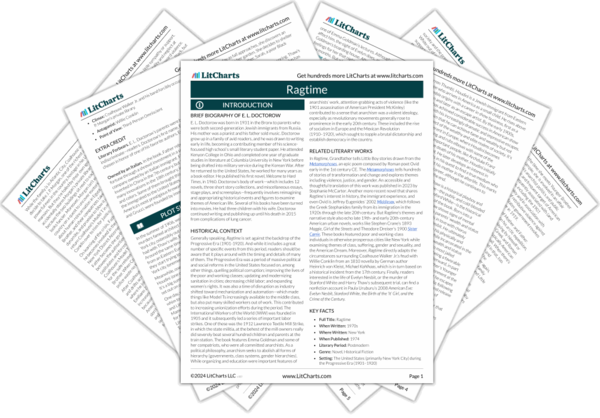In having Father sleep through the symbolically significant thunderstorm, the book strongly implies that he will not be a part of whatever salutary changes the future brings. He’s destined for obscurity and obsolescence. But even as it makes this assertion, the book asks modern day readers to reflect on whether society has lived up to the book’s hope for the future. Notably, Father’s character (socially and politically conservative) remains recognizable in the 21st century as a stereotypical kind of citizen.


